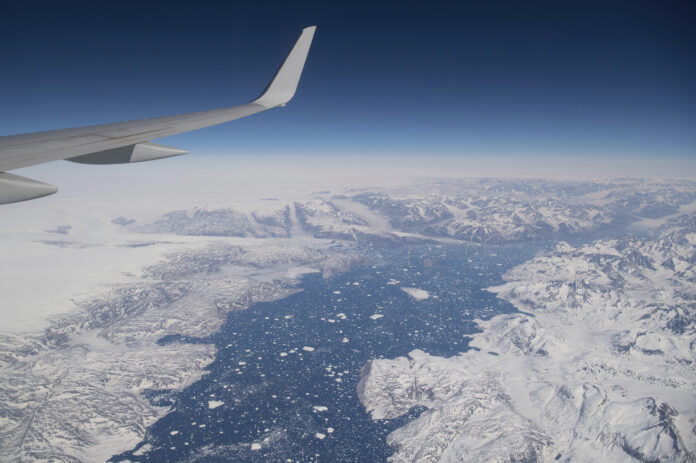A deal has been reached settling a dispute with Denmark over a 1.3-square-kilometre island in the Arctic and is expected to be signed Tuesday, according to a government minister.
Dan Vandal, minister of northern affairs, confirmed Monday that there will be an “official signing” of the accord over Hans Island on Tuesday.
The barren rock has been the subject of decades of diplomatic disputes between the two nations, as it sits in the territorial waters of both.
The agreement is expected to divide the uninhabited island between Ellesmere Island, in Nunavut, and Greenland, an autonomous Danish territory.
Vandal, speaking to reporters on Monday, said he was “looking forward” to the signing of the agreement and would attend the ceremony.
He said “discussions have been going on for a long time” and “the important part is that the deal got done and we are going to have the signing tomorrow.”
“I think it’s very positive given our world situation today,” he said.
The deal is likely to mean that Canada, for the first time, shares a land border with Denmark.
Canada’s new Arctic and offshore patrol ships named after naval heroes – May 29, 2022
The dispute over the small island has led to good-natured jostling since the 1980s between Canada and Denmark over which country rightfully owns it.
In 1984, Canada planted a flag on the island and left a bottle of Canadian whisky.
Later that year, Denmark’s minister of Greenland affairs visited by helicopter, planting a Danish flag. He also left a bottle of aquavit, a Danish spirit, at the base on the flagpole and is reported to have left a note saying “welcome to the Danish Island.”
Trending Stories
Passport renewal wait times now online as Ottawa looks to address long lineups
Ramsay Hunt syndrome: Here’s what we know about Justin Bieber’s diagnosis
In 1988, a Danish Arctic Ocean patrol ship arrived and built a cairn with a flagpole and Danish flag on the island.
Then in 2001, Canadian geologists mapping northern Ellesmere Island flew there by helicopter.
In 2005, Canada’s defence minister Bill Graham went for a walk on Hans Island in a symbolic move. A week before he set foot there, Canadian Forces placed a Canadian flag and plaque on the island, prompting a protest from Denmark, which called in the Canadian ambassador.
In 2005, both countries agreed to reopen negotiations about the island with former Danish Prime Minister Anders Fogh Rasmussen saying it was “time to stop the flag war.”
Both countries agreed, if they couldn’t reach a deal, to refer it to the International Court of Justice in The Hague for resolution.
NORAD performs Arctic training operation amid war in Ukraine – Mar 14, 2022
The island is called Tartupaluk in Inuktitut and Greenlandic, and has been part of Inuit hunting grounds for centuries.
Denmark and Canada are NATO allies and both sit on the Arctic Council. Recently the two nations have been co-operating closely over the war in Ukraine, including on aid programs for women and girls fleeing the conflict.
A spokesman for Foreign Affairs Minister Joly declined to comment.
But the Minister of Fisheries, Oceans and the Canadian Coast Guard, Joyce Murray, said the negotiations were “an indication of the strong partnership and friendship that we have with Denmark.”
Conservative foreign affairs critic Michael Chong said the deal was “a demonstration of how countries who are upstanding members of our international system can work together to settle disputes around international boundaries.”
“Few things are more sacrosanct in maintaining international order than ensuring that we respect each other’s international boundaries,” Chong said.
NDP foreign affairs critic Heather McPherson told reporters on Monday that the agreement is a sign of greater international co-operation on Arctic affairs.
“Arctic border countries have an obligation to work together and this is just one of those indications that shows that we’re doing that,” she said.
She joked that the deal might mean that Canada could now qualify to compete in the Eurovision song contest.
© 2022 The Canadian Press



